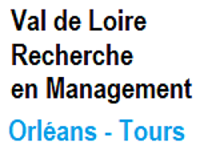Research area 3 - Governance, performance and collective intelligence
This research area is managed by Isabelle CALME (Senior Lecturer) and Eric-Alain ZOUKOUA (University Professor)
It currently involves 27 researchers: 3 university professors, 1 university professor emeritus, 4 senior lecturers authorised to supervise research (HDR), 11 senior lecturers, 5 doctors and 3 doctoral students.
Research area 3 comprises research into change management and co-construction. The research concerns the changes and dynamics created to cope with the challenge of digitalisation and social and environmental challenges, sometimes in periods of budgetary restrictions. Researchers in this area study the changes in management methods and the functioning of diverse organisations: in addition to joint-stock companies, there is increasing interest in public organisations (universities, local organisations), SSE organisations and healthcare organisations, in particular those for persons with disabilities. The work carried out involves various disciplines (finance/governance, accounting/control/audit, strategy, marketing etc.) and mainly concerns three additional key themes of research:
- Understanding innovation and creativity processes
- Understanding entrepreneurial and funding dynamics
- Understanding accounting and control systems
1/ Understanding innovation and creativity processes
The researchers study issues linked to the management of innovation processes and the involvement of stakeholders in these processes. Special attention is given to the implementation and conditions of acceptability of innovative solutions that aim to optimise the management and functioning of organisations of various sizes and in different sectors (services, healthcare organisations, VSEs/SMEs etc.). The researchers are particularly interested in home automation innovations in the healthcare sector and more widely in the service sector, and innovative solutions that support humanitarian aid and logistics. To better understand how the innovations work, researchers employ the concept of change management and other concepts such as that of dynamic capabilities. For example, in the context of VSEs/SMEs the research conducted concerns the managers’ commitment to digital transformation and aims to better define the dynamic capabilities deployed in this connection.
Members of this research area are also interested in the creativity behind the innovation processes. They therefore examine the use, in occupational contexts, of practices that result (among other things) in stimulating individual creativity, such as meditation and mindfulness, in particular in startups, and the use of art in management (e.g.: business theatre etc.). The researchers are also interested in collective creativity, questioning the use of crowdsourcing to innovate in various business sectors. Crowdsourcing comprises all management practices aimed at outsourcing activities: ideation, opinions, creativity, micro-tasks or funding). Among a wide range of measures that enable each person to express their creativity for the common good, researchers in this area are interested inter alia in the measures implemented by local organisations (participatory democracy) as well as by SSE organisations. The researchers are particularly sensitive to the creativity and dynamics deployed by social entrepreneurs.
2/ Understanding entrepreneurial and funding dynamics
The researchers are interested in the approaches initiated by diverse actors that employ collective intelligence to be more innovative and entrepreneurial. The research therefore concerns the processes for mobilising financial and social resources in connection with innovative and/or entrepreneurial approaches. Special attention is given to the use of intermediaries such as crowdfunding platforms and other actors in the entrepreneurial ecosystem etc.
Crowdfunding (a form of crowdsourcing) is studied in depth by the members of this research area, whether it is speculative (equity, loans etc.) or non-speculative (outright grant, barter, tip etc.). The research concerns the issues and conditions for success of this method of funding, as well as the network dynamics involved (beyond the digital sphere). Several areas of application have already been studied or are under study: in particular the funding of music and cultural projects, social and solidarity initiatives, projects to protect the cultural heritage and funding of entrepreneurial activities (in particular startups).
One of the issues preferred by the members concerns entrepreneurial funding via crowdfunding platforms as well as via other actors in the funding ecosystem. More generally, the research aims to better define the dynamics of entrepreneurial ecosystems at the regional level, and to understand the construction of collective entrepreneurial strategies: the issues tackled include the mobilisation of resources (not only financial resources) in the region to further entrepreneurial development, and the issue of entrepreneurial attractiveness.
3/ Understanding accounting and control systems
Numerous changes (financial markets, globalisation and changes in standardisation and regulations, in particular IFRS, digitalisation, CSR movement, crises etc.) encourage very diverse organisations to reform their methods of management and governance. Consequently, special attention is given by researchers in this area to changes in the accounting professions and more widely to changes in the accounting and control systems. These changes have led the members of this research area to examine or re-examine the content of the accounting and financial information, the role and legitimacy of accounting professions (controllers in particular) as well as the teaching of these professions.
Digitalisation of accounting and control processes was accelerated by the health crisis linked to Covid-19 and is one of the concerns of the members of this research area. A project is in progress to create a chair (chair of digitalisation of accounting professions) in order to support the changes in the accounting professions with the advent of digitalisation. In addition to the challenge of digitalisation, special attention is given to the social and environmental challenges that organisations are confronted with. The researchers therefore devote part of their work to redesigned or re-invented accounting and control processes and models to meet CSR requirements (ESG, social report, multi-capital accounting, intangible accounting, social management control, extra-financial measurement etc.).
